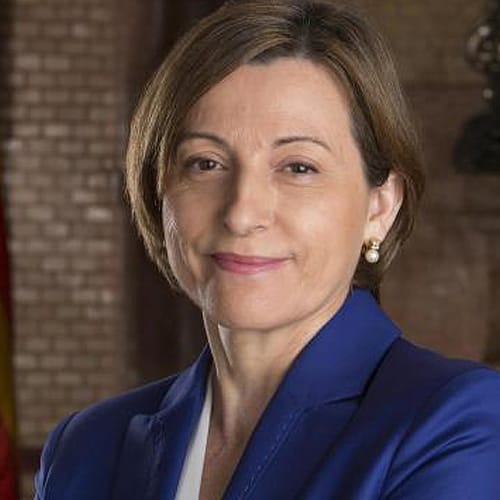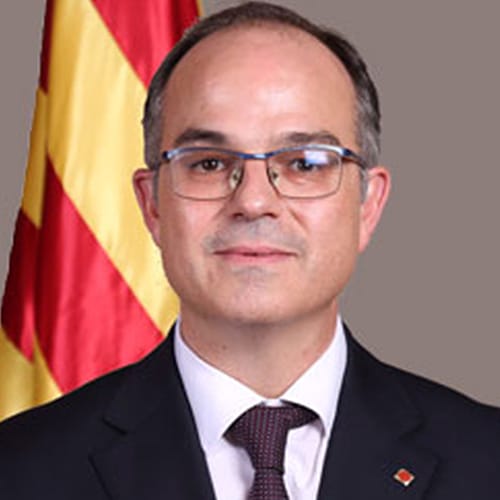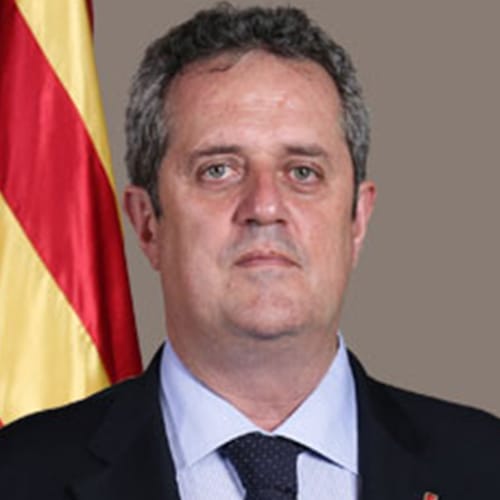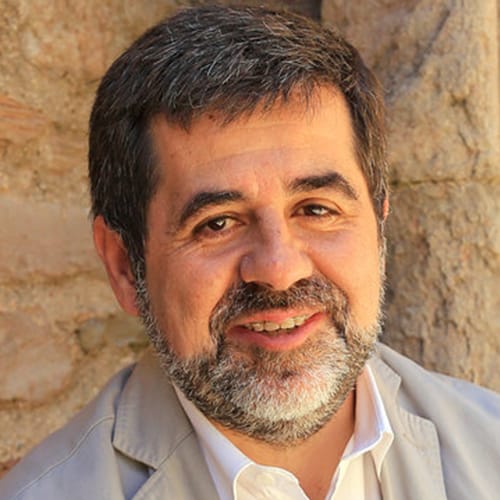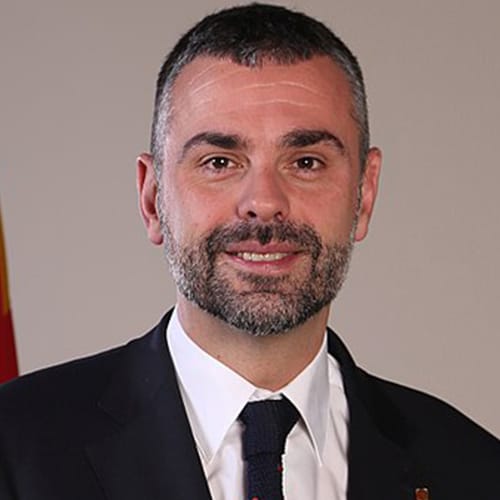Summary of the case
Extraordinary Case No. 20907/2017, brought before the Spanish Supreme Court, is the criminal case against 12 people charged by the Public Prosecutor’s Office with the crimes of rebellion, disobedience and embezzlement of public funds, for which it had requested 177 years’ imprisonment.
The criminal proceedings began with the events related to the Referendum of the 1st of October 2017 and the trial was held in Madrid between 12 of February and 12 June 2019. The defendants included civil society leaders, the President and vice president of the Parliament of Catalonia and members of its Government.
Out of all the defendants, two of them were in pre-trial detention since October 2017. Nine defendants were sent to pre-trial detention in November 2017, released shortly afterwards and back in pre-trial detention from March 2018. The months of pre-trial detention in Madrid led to long periods of time during which the defendants were far from their families and defence teams. The rest of the defendants were free on bail.
In addition to the 12 defendants, six members of the Parliament’s Bureau will be be judged before the High Court of Justice of Catalonia for disobedience. Another seven people who are currently in other European countries are being processed in the same lawsuit. The National High Court (Audiencia Nacional) and the Supreme Court issued several European Arrest Warrants. These European Arrest Warrants were issued and withdrawn several times because they had not obtained the desired result or it was foreseen that they would not obtain it. In Germany, the Higher Regional Court of Schleswig-Holstein did not recognise that the requirements of the crime of rebellion in the European Arrest Warrant against Catalan President Carles Puigdemont were met. There is currently no European Arrest Warrant pending resolution, which means that these seven people are not being pursued even though they are being prosecuted for the same facts on which the trial is based. Although they are free in different European countries, there is an arrest warrant issued against them in Spain.
The crime of rebellion, with which the Public Prosecutor’s Office was charging some of the defendants, is one of the most serious crimes in the Spanish Criminal Code. It involves a ‘violent and public uprising’ and is punishable by imprisonment for up to 25 years. The only precedent for the crime of rebellion since the passing of the Spanish Constitution of 1978 was Fernando Tejero’s (Lieutenant-Colonel of the Guardia Civil) conviction for his attempted coup d’état on the 23rd of February 1981, which involved the occupation of the Parliament by armed units and the deployment of tanks in the street.
In addition to the charges filed by the Public Prosecutor’s Office, there were two further prosecutions. Firstly, the Solicitor General of the State was accusing them of the crime of sedition, which involves a ‘public and tumultuous uprising’ and carries penalties of up to 15 years in prison. Secondly, the far-right political party VOX accused of even higher penalties, adding to the crime of rebellion the crime of criminal organisation.
The defence teams warned from the start that this was a political trial. They alleged the nullity of the crimes of which their clients were accused and repeatedly asked for their release. They also claimed that the Supreme Court and the National High Court had no competence, because they did not have legal jurisdiction over these cases. They also alleged violations of fundamental rights before the Constitutional Court repeatedly, which were admitted but not resolved, blocking access to the European Court of Human Rights. For this reason, 4 of the prisoners started a hunger strike.
The defence teams also took the case before the UN Human Rights Committee and the Working Group on Arbitrary Detentions. Two resolutions of the Working Group described the imprisonment as arbitrary and requested their immediate release.
On 14 October 2019 the Spanish Supreme Court notified its judgement number 459/2019, condemning members of the Catalan government, the President of the Catalan Parliament and two social leaders with the following crimes and penalties:
- Crime of sedition together with the crime of embezzlement of public funds to the following members of the Catalan government:
- Oriol Junqueras, Vice-president and Regional Minister of Economy and Treasury of the Catalan government, to 13 years imprisonment and 13 years general disqualification.
- Raül Romeva, Regional Minister of Foreign Affairs, Institutional Relations and Transparency of the Catalan government, to 12 years imprisonment and 12 years general disqualification.
- Jordi Turull, as Member of the Parliament first and then Regional Minister of the Presidency, to 12 years imprisonment and 12 years general disqualification.
- Dolors Bassa, Regional Minister of Work, Social Affairs and Family, to 12 years imprisonment and 12 years general disqualification.
- Crime of sedition:
- Carme Forcadell, President of the Catalan Parliament (and President of the civil society’s association Assemblea Nacional Catalana), to 11 years and 6 months imprisonment and 11 years and 6 months general disqualification.
- Joaquim Forn, Regional Interior Minister of the Catalan government, to 10 years and 6 months imprisonment and 10 years and 6 months general disqualification.
- Josep Rull, Regional Minister of Land and Sustainability of the Catalan government, to 10 years and 6 months imprisonment and 10 years and 6 months general disqualification.
- Jordi Sànchez, President of the association Assemblea Nacional Catalana, to 9 years imprisonment and 9 years general disqualification.
- Jordi Cuixart, President of the association Òmnium Cultural, to 9 years imprisonment and 9 years general disqualification.
- Crime of disobedience:
- Members of the Government Santiago Vila, Meritxell Borràs and Carles Mundó to a fine of 10 months with a daily fee of 200 euros (60,000 euros each) and special disqualification from holding elective public office during 1 year and 8 months.
Afterwards, the defence teams of Jordi Cuixart, Joaquim Forn, Jordi Sánchez, Dolors Bassa, Jordi Turull, Josep Rull, Carles Mundó, Meritxell Borrás, Santiago Vidal, Carme Forcadell, Oriol Junqueras and Raül Romeva filed nullity incidents against the judgement. These were dismissed by Supreme Court on 29 January 2020, together with the incident filed by the people’s prosecution.








